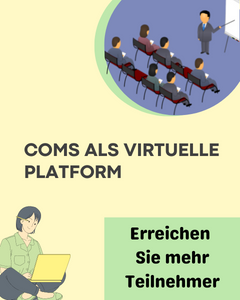Konferenzen > Informatik > Wissenschaftliches Rechnen und Datenwissenschaft
Wählen Sie ein Land aus
Deutschland (2) - Großbritannien (1) - Kanada (1) - Niederlande (1) - Rumänien (1) - Türkiye (1) - Vereinigte Staaten (1)
ALLE LÄNDER (8)
1
Dagstuhl-Seminar — Contextualising Complexity – Faithful Visualisations for Biology
01. Mär 2026 - 06. Mär 2026 • Schloss Dagstuhl, Deutschland
Eintrags-ID:
1671255
Webseite:
2
DSC NEXT 2026 — DATA SCIENCE NEXT EUROPE CONFERENCE 2026
24. Mär 2026 - 26. Mär 2026 • Amsterdam, Niederlande
Eintrags-ID:
1663435
Webseite:
3
Workshop — Imaging inverse problems and generating models: sparsity and robustness versus expressivity
04. Mai 2026 - 07. Mai 2026 • ICMS, Bayes Centre, Edinburgh , Großbritannien
4
Variational Problems in the Physical and Data Sciences: Analysis, Modeling, and Simulation
05. Jul 2026 - 10. Jul 2026 • Banff, Alberta, Kanada
Eintrags-ID:
1668691
5
MCWA-2026 — 2nd INTERNATIONAL CONFERENCE ON MATHEMATICS AND COMPUTERS WITH APPLICATIONS
21. Jul 2026 - 23. Jul 2026 • İstanbul, Türkiye
Eintrags-ID:
1693233
Webseite:
6
ICASC 2026 — International Conference on Advanced Scientific Computing
21. Okt 2026 - 23. Okt 2026 • Cluj-Napoca, Rumänien
Eintrags-ID:
1698678
Webseite:
7
Sampling and Data in Algebraic Geometry
04. Mai 2027 - 04. Sep 2027 • Providence, Vereinigte Staaten
Eintrags-ID:
1698542
8
WE-Heraeus-Seminar — Emerging Directions in Neutral‐Atom Quantum Information Science
22. Aug 2027 - 26. Aug 2027 • Physikzentrum Bad Honnef, Deutschland
Eintrags-ID:
1688339
Conference-Service.com stellt der Öffentlichkeit ein Kalendarium wichtiger Konferenzen, Symposien und sonstiger Tagungen im wissenschaftlich-technischen Bereich zur Verfügung. Obwohl das Verzeichnis mit großer Sorgfalt zusammengestellt und ständig aktualisiert wird, weisen wir auf die Möglichkeit von Fehlern ausdrücklich hin. Bitte vergewissern Sie sich immer beim Veranstalter, bevor Sie über die Teilnahme oder Nichtteilnahme an einer Konferenz entscheiden.
Stand vom 1. März 2026



